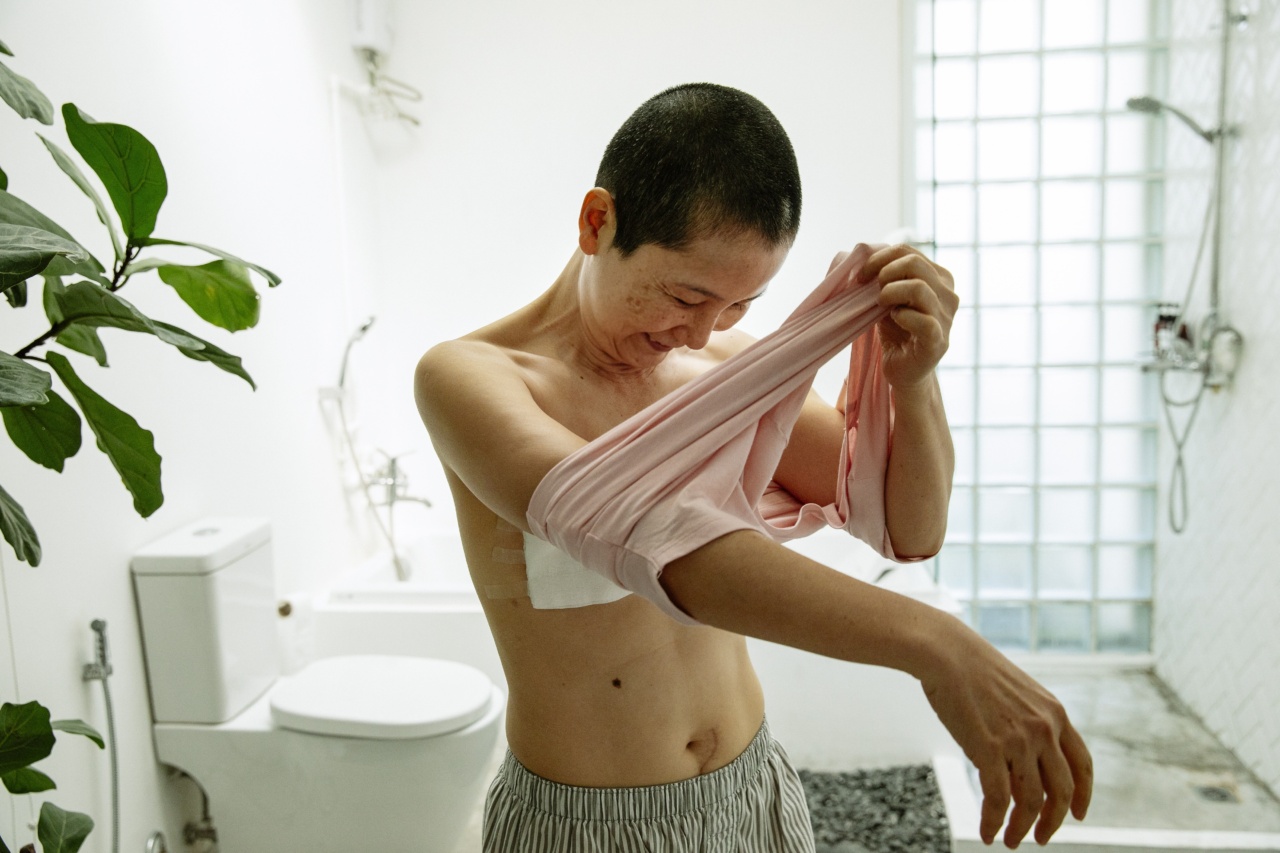Aggressive breast cancer, also known as triple-negative breast cancer, is a highly invasive form of breast cancer that is difficult to treat.
It accounts for about 10-20% of all breast cancer cases and is particularly challenging due to the lack of targeted therapies. However, in recent years, there have been significant breakthroughs in combination therapy approaches that show promising results in the treatment of aggressive breast cancer.
Understanding Aggressive Breast Cancer
Aggressive breast cancer is characterized by the absence of three key receptors – estrogen receptor (ER), progesterone receptor (PR), and human epidermal growth factor receptor 2 (HER2).
This triple-negative status makes it more difficult to target the cancer cells specifically, as these receptors are often targeted by existing therapies for other forms of breast cancer.
Challenges in Treating Aggressive Breast Cancer
Due to the absence of specific receptors, aggressive breast cancer has limited treatment options compared to other types of breast cancer.
Chemotherapy is often the primary treatment for triple-negative breast cancer, but it may not be sufficient to eradicate all the cancer cells, leading to a higher risk of recurrence.
Furthermore, aggressive breast cancer tends to be more aggressive in its growth and metastasis compared to other forms of breast cancer.
This aggressive nature poses a significant challenge for treatment, as it requires therapies that can effectively target the rapidly dividing cancer cells.
Breakthrough Combination Therapies
Through extensive research and clinical trials, scientists have made significant strides in developing breakthrough combination therapies for aggressive breast cancer.
1. PARP Inhibitors with Chemotherapy
Poly ADP ribose polymerase (PARP) inhibitors have shown promise in treating aggressive breast cancer. PARP enzymes repair damaged DNA within cells.
When PARP inhibitors are used in combination with chemotherapy, they help prevent cancer cells from repairing the DNA damage caused by chemotherapy drugs. This results in increased cell death and improved treatment outcomes.
2. Immunotherapy with Checkpoint Inhibitors
Immunotherapy has emerged as an exciting field in cancer treatment. Immune checkpoint inhibitors, such as pembrolizumab, have shown efficacy in treating aggressive breast cancer.
These inhibitors work by blocking the proteins that restrain the immune system, allowing it to recognize and attack cancer cells more effectively.
3. Targeted Therapy with CDK4/6 Inhibitors
Cyclin-dependent kinase 4/6 (CDK4/6) inhibitors have shown promising results in combination with targeted therapies for aggressive breast cancer.
CDK4/6 inhibitors, such as palbociclib, ribociclib, and abemaciclib, work by blocking the proteins that promote cell division. When used in combination with targeted therapies, such as hormone therapies, they effectively hinder the growth of aggressive breast cancer cells.
4. Antibody-Drug Conjugates (ADCs)
Antibody-drug conjugates are a novel approach to targeted therapy. These therapies consist of monoclonal antibodies that specifically bind to cancer cells and deliver a potent chemotherapy drug directly to the cancer cell.
ADCs have shown promising results in clinical trials for aggressive breast cancer and offer a more targeted approach with fewer side effects.
5. Dual HER2 Blockade
For aggressive breast cancer cases that do express the HER2 receptor, a dual HER2 blockade has shown significant benefits.
This approach involves combining two HER2-targeted therapies, such as trastuzumab and pertuzumab, to effectively block the HER2 signaling pathway in cancer cells. This combination has been shown to improve treatment response and overall survival rates in HER2-positive aggressive breast cancer.
6. Targeting DNA Repair Mechanisms
Aggressive breast cancer cells often have deficiencies in DNA repair mechanisms, making them more vulnerable to specific therapies. Targeting these inherent weaknesses has shown promise as a therapeutic approach.
Various drugs that inhibit specific DNA repair pathways, such as ATR and CHK1 inhibitors, have demonstrated effectiveness in preclinical and early clinical trials.
7. Neoantigen Vaccines
Neoantigens are unique proteins present on cancer cells that can be recognized by the immune system. Neoantigen vaccines stimulate the immune system to recognize and attack cancer cells more effectively.
They have shown promising results in clinical trials for aggressive breast cancer and hold potential as a future combination therapy alongside existing treatments.
8. Metabolic Targeting
Targeting the metabolic processes within aggressive breast cancer cells offers a new approach to therapy.
Drugs that inhibit specific metabolic pathways, such as glutaminase inhibitors or fatty acid synthesis inhibitors, have shown efficacy in preclinical studies. Combination therapies that exploit the metabolic vulnerabilities of aggressive breast cancer may hold promise for future treatments.
9. Angiogenesis Inhibitors
Angiogenesis inhibitors are drugs that prevent the formation of new blood vessels that supply the tumor with nutrients.
While angiogenesis inhibitors alone may have limited efficacy, combining them with other therapies, such as chemotherapy or immunotherapy, has shown improved treatment outcomes in aggressive breast cancer cases.
10. Triple Therapy Approaches
In some cases, combining multiple targeted therapies with chemotherapy has demonstrated improved treatment outcomes.
This approach involves integrating various therapeutic strategies to target multiple pathways involved in aggressive breast cancer growth and survival.
Conclusion
Aggressive breast cancer remains a significant challenge in oncology, but breakthrough combination therapies offer hope for improved treatment outcomes.
The advancements in PARP inhibitors, immunotherapy, targeted therapies, antibody-drug conjugates, and other approaches provide valuable options in the fight against aggressive breast cancer. Further research and clinical trials are essential to continue refining and optimizing these combination therapies for the benefit of patients.




















